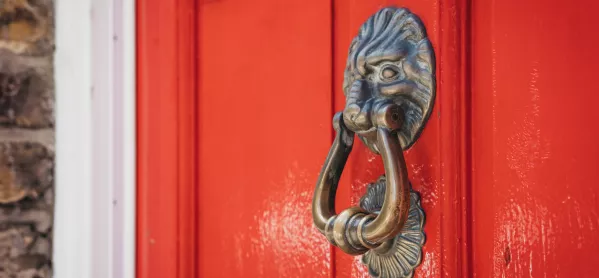- Home
- EYFS: How to get home visits right
EYFS: How to get home visits right

Many settings carry out home visits before children and families start with them.
But whether you work in a playgroup, private nursery, school nursery or Reception class, there are some important considerations to take into account before making these visits part of your practice.
If home visiting is already part of your role, take some time to reflect and review with your team.
Quick read: Five questions we need to ask about EYFS
Quick listen: What you need to know about the problems with ‘school readiness’
Want to know more? My year in teaching: adventures with my early years class
We must be clear and consistent about what we do and why we do it. There are dos and don’ts that must be regarded to make sure that a visit is successful and comfortable for all involved.
Be flexible
Remember that a visit to a family’s home is a privilege. You are their guest. In this way, the visit must take place on their terms, and at their convenience.
It can be very difficult for many parents or carers to get time off to see you during the day, and their child may be at nursery during this time, making it disruptive for everyone and hardly an ideal start.
Rather than send appointments to the families, put up a chart at your introductory sessions for new families and ask them to sign up for a convenient time.
As a teacher, I met my youngest son’s new nursery teacher at my childminder’s house during my lunch break, a mutually convenient time for us all.
Allow refusals
Remember that there is no obligation to have a visit, it is not a statutory requirement.
If a family does not want a visit for any reason this must be respected, and reasons must not be expected.
An informal meeting at a different venue may be more acceptable. I have met families in a local coffee shop, and some of my families preferred to come to school for a private cup of tea and a chat.
The core purpose of these visits must be to build up relationships founded on two-way trust and respect.
Don’t be judgemental
In order to build up this trust and respect, the home visit must not to be viewed as a time for form filling or cross examination.
It is not an assessment or test - remember that some families will have had other agencies involved in their lives which may not have been such a pleasant experience.
Home visits are not judgemental, and should not be perceived as such. In this way, writing any kind of notes is inappropriate; don’t go armed with a clipboard and forms to fill in as this could easily be perceived as threatening.
Your visit is an opportunity to meet each other in an informal way, play with the children and feel relaxed in each other’s company. Building up trust and respect will help families to share things in confidence if they wish.
That is not to say that forms cannot be left with the parents to be filled in after the visit. Remember that visitors with clipboards are intimidating and this will damage any relationship.
Be sensitive to timings
Think about how long each visit needs to be, and be sure that the family knows how long you will be there. It is important that these aren’t rushed, but also that the welcome is not outstayed.
The family must feel relaxed. It is fine to accept or decline a drink or something to eat just as you would when visiting a friend.
Bring resources
Take a resource from the setting to share with the child. I always take a story sack as they enable interaction with the child, the family can join in, and the same resource will be available for them when they start at the setting.
Stay relaxed
Keeping relaxed can help families to share very private information with you. For example medical matters, special needs or family circumstances.
This must be respected as confidential and any paperwork given must be treated securely at the setting; the information should only be shared with those who need to know.
A relaxed home visit is about your team too. If you know that a colleague has specific allergies, it is always a good idea to check if a family has pets when arrangements are made.
Go in pairs
Finally, home visits must always be done in pairs. This is a safeguard for all concerned, but is also very practical - with two adults visiting there will be time for play and conversation and for everyone to feel relaxed.
Dr Sue Allingham is an EYFS researcher
Keep reading for just £1 per month
You've reached your limit of free articles this month. Subscribe for £1 per month for three months and get:
- Unlimited access to all Tes magazine content
- Exclusive subscriber-only stories
- Award-winning email newsletters


